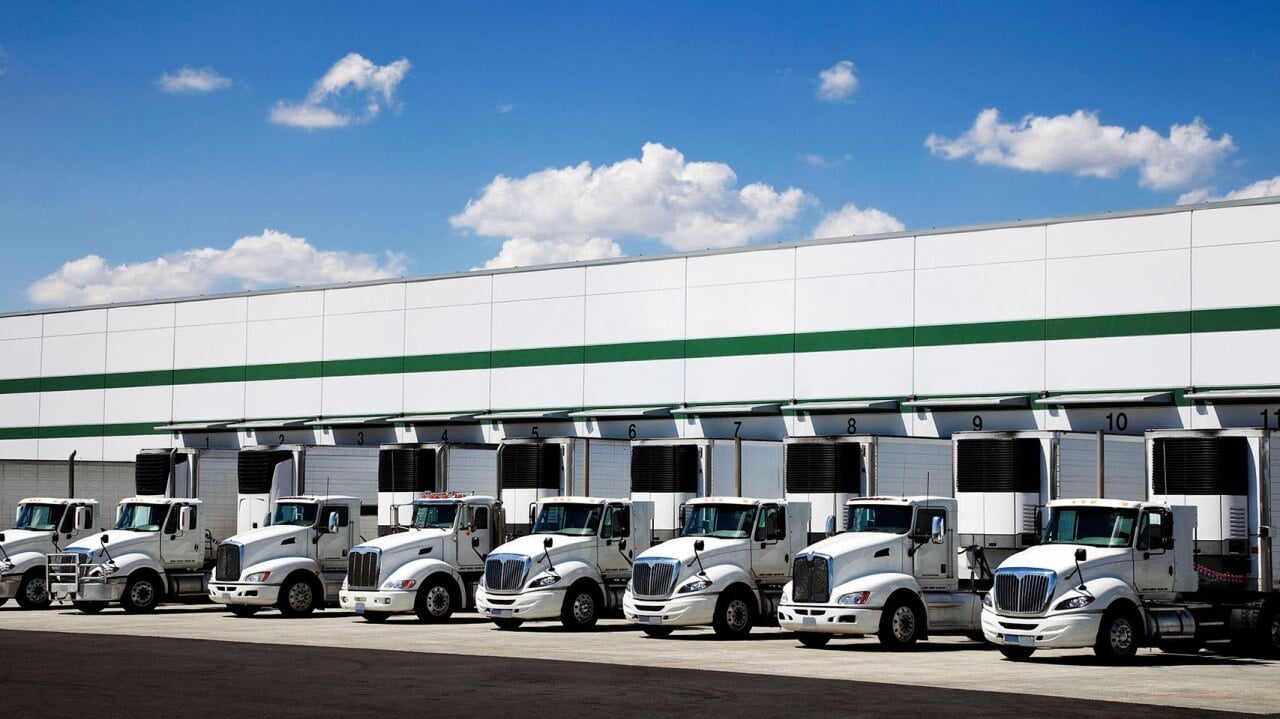Optimize your small fleet operations with Rolon Mobile Truck Repair. We bring expert maintenance directly to your location, minimizing downtime and maximizing productivity. Schedule preventative maintenance, repairs, and inspections at your convenience. Explore our Mobile Fleet Services below!
Running a small business is a balancing act. You juggle multiple responsibilities, constantly striving to optimize operations and maximize profits. But when your business relies on vehicles, a whole new layer of complexity is introduced. Here's where small fleet management comes in – the strategic approach to ensure your fleet vehicles are operating efficiently and cost-effectively.
Whether you manage a handful of delivery vans or a crew of service technicians with their own cars, proper small business fleet management can significantly impact your bottom line. A “Small Fleet” is any number of fewer than 15 vehicles. This guide equips you with the essential knowledge and strategies to streamline your fleet operations, reduce operational costs, and keep your business running smoothly.
Optimizing Small Fleet Management For Performance: Strategies For Triumph
- Fuel Efficiency is Key: In today's economic climate, fuel costs are a significant concern for any fleet manager. Implementing strategies to improve fuel efficiency directly translates to cost savings. Techniques like driver training programs focused on fuel-saving habits, route optimization to minimize travel time and distance, and regular preventive maintenance to keep engines running smoothly all contribute to significant fuel savings.
- Embrace the Power of Fleet Management Software: Gone are the days of managing your fleet with spreadsheets and sticky notes. Modern small fleet management software centralizes all your fleet data., providing real-time insights into vehicle performance, fuel consumption, driver behavior, and maintenance schedules. This empowers you to make data-driven decisions to optimize routes, reduce idle time, and identify areas for improvement. Whether you manage a handful of delivery vans or a crew of service technicians with their own cars, small fleet management companies can significantly impact your bottom line by applying the right strategies.
- Fuel Cards – Streamlining Payments and Tracking: Fuel cards offer numerous benefits for small fleet management. They provide a convenient way for drivers to fill up without the need for cash advances, simplify expense tracking, and even offer potential discounts on fuel purchases from participating stations. Additionally, some fuel cards offer detailed fuel consumption reports, helping you identify vehicles that might be experiencing lower fuel efficiency.
- Preventive Maintenance: A Stitch in Time Saves Nine: Regular preventive vehicle inspection and maintenance is crucial for any fleet, especially when focusing on fleet management for small business operations, where cost efficiency and minimizing downtime are top priorities. By adhering to a recommended maintenance schedule, you can identify and address minor issues before they escalate into major repairs that can sideline your vehicles and disrupt business operations. Timely maintenance not only extends the lifespan of your fleet vehicles but also helps to improve fuel efficiency and overall performance.
- Ensuring Optimal Vehicle Condition at All Times: To maintain a high standard of efficiency and safety, it is crucial that vehicles are at all times in top working condition. This means adhering to regular maintenance schedules, conducting routine vehicle inspections, and ensuring prompt attention to any issues reported by drivers. By keeping vehicles in optimal condition, businesses can reduce unexpected breakdowns, maintain uninterrupted fleet operations, and contribute to overall driver and public safety.
- Leverage the Power of Vehicle Tracking: Real time vehicle tracking systems provide invaluable insights into fleet management for small businesses, helping to optimize routes, ensure driver safety, and improve efficiency. This empowers you to monitor driver behavior, optimize routes for efficiency, and ensure the safety and security of your vehicles. Additionally, vehicle tracking data can be used to create service reminders based on mileage or time intervals, ensuring your vehicles receive preventive maintenance at the optimal time. Learn more about vehicle tracking and fleet management.
- Invest in Driver Training: Your drivers are the backbone of your small fleet. By investing in driver training programs, you can equip them with the knowledge and skills necessary to operate their vehicles safely and efficiently. This not only reduces the risk of accidents and costly repairs but also contributes to improved fuel efficiency and overall fleet performance.
- Cultivate a Culture of Vehicle Care: Encouraging a culture of responsible vehicle use among your drivers goes a long way in protecting your fleet investment. Regularly communicate the importance of proper vehicle care, outlining best practices for fuel-efficient driving, safe loading and unloading techniques, and reporting any maintenance concerns promptly.
- Embrace Technology for Streamlined Operations: Technology plays a critical role in modern small fleet management. From GPS tracking systems and small business fleet management software to mobile apps for driver communication and maintenance scheduling, there's a wide range of technology solutions available to streamline your operations and enhance efficiency.
Case Study: A Small Fleet's Journey To Efficiency
The Challenge:
A small landscaping company faced increasing operational costs and logistical challenges as its fleet of trucks and trailers grew. They struggled with inefficient routing, excessive fuel consumption, and difficulty tracking vehicle maintenance.
The Solution:
To address these issues, the company implemented a comprehensive fleet management strategy:
- Vehicle Telematics:
- Real-time tracking: The company installed GPS tracking devices on all vehicles to monitor their real-time location and movement. This enabled them to optimize routes, reduce idle time, and improve response times.
- Driver behavior monitoring: The telematics system provided insights into driver behavior, such as speeding, hard braking, and excessive idling. By identifying and addressing these issues, the company was able to improve safety and reduce fuel consumption.
- Real-time tracking: The company installed GPS tracking devices on all vehicles to monitor their real-time location and movement. This enabled them to optimize routes, reduce idle time, and improve response times.
- Fuel Card Program:
- Centralized fuel management: The company implemented a fuel card program to control fuel expenses and track fuel usage.
- Detailed fuel reports: By analyzing fuel consumption data, the company was able to identify vehicles with poor fuel efficiency and take corrective action.
- Centralized fuel management: The company implemented a fuel card program to control fuel expenses and track fuel usage.
- Preventive Maintenance:
- Regular maintenance schedule: A strict maintenance schedule was established to ensure vehicles were always in optimal condition.
- Automated maintenance alerts: The fleet management software sent timely maintenance alerts, reducing the risk of breakdowns and costly repairs.
- Regular maintenance schedule: A strict maintenance schedule was established to ensure vehicles were always in optimal condition.
- Driver Training and Incentives:
- Driver training: The company invested in driver training programs to improve fuel efficiency, safety, and customer service.
- Incentive programs: A reward system was implemented to recognize and reward safe driving behavior and fuel efficiency.
- Driver training: The company invested in driver training programs to improve fuel efficiency, safety, and customer service.
The Results:
- Reduced fuel costs: By optimizing routes, reducing idle time, and improving driver behavior, the company achieved significant fuel savings.
- Improved vehicle uptime: Preventive maintenance and timely repairs minimized vehicle downtime, ensuring uninterrupted operations.
- Enhanced operational efficiency: Real-time tracking and route optimization helped the company to allocate resources more effectively.
- Increased customer satisfaction: Faster response times and improved service quality led to increased customer satisfaction and loyalty.
Key Takeaways:
- Technology is your ally: Utilize technology to streamline operations and gain valuable insights.
- Data-driven decision-making: Analyze data to identify areas for improvement and make informed decisions.
- Invest in driver training: A well-trained workforce is essential for efficient and safe operations.
- Preventive maintenance is key: Regular maintenance can significantly reduce operating costs and downtime.
- Customer satisfaction is paramount: Efficient fleet management leads to better customer service and increased business growth.
By implementing a comprehensive fleet management strategy, this small landscaping company was able to overcome challenges, improve efficiency, and achieve significant cost savings. This case study highlights the importance of a proactive approach to fleet management and the potential benefits that small fleet management solutions can bring to businesses of all sizes.
The Bottom Line: Small Fleet Management – A Recipe For Success
Applying these ground plans can transform small fleet management from a chore to a strategic advantage. Optimizing fuel efficiency, leveraging technology, and fostering a culture of responsible vehicle care all contribute to significant cost savings, improved performance, and ultimately, a more successful business. Remember, a well-managed fleet is not just about keeping your vehicles on the road – it's about keeping your business moving forward.
Simplify Fleet Management with Rolon
Rolon Mobile Truck Repair helps small fleets like yours control maintenance costs with convenient mobile on-site service. Reduce downtime, avoid expensive repairs, and improve your bottom line. Get a quote today! We are also available 24/7 to those within Sanford,FL and surrounding areas.
FAQs
1. How to Manage a Fleet of Trucks
Managing a fleet of trucks involves implementing strategies to ensure vehicles are operating efficiently and safely. Key aspects include using fleet management software to track vehicle performance, scheduling regular maintenance, monitoring driver behavior, and optimizing routes for fuel efficiency. Training drivers on safe driving practices and maintaining detailed records of all fleet activities are also essential for successful fleet management.
2. How to Manage a Fleet of VehiclesManaging a fleet of vehicles requires careful coordination of vehicle maintenance, driver performance, and operational logistics. Fleet management software is crucial for real-time tracking, fuel consumption monitoring, and maintenance scheduling. Additionally, investing in preventive maintenance, driver training, and route optimization can help reduce operational costs and improve overall fleet efficiency. A strong focus on safety, compliance, and efficient communication is vital to ensure the smooth operation of a vehicle fleet.





